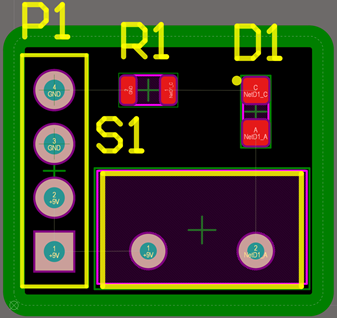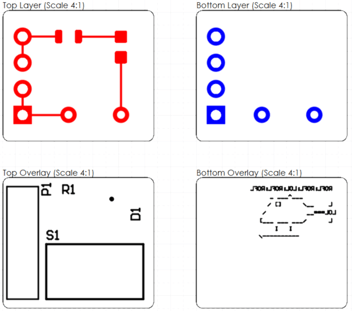Technical Contributor to Stepping into the Project Manager's Seat
From Being a Technical Contributor to Wearing the Project management Hat
If you can’t wait to join the ranks of project management professionals, the following read may be for you. Be warned, the alluring role of Project Manager, especially in the field of research and development, is not all fun and games. It can be simultaneously challenging and extremely rewarding. I recently moved into a full-time Project Manager role for an engineering firm that specializes in consulting and developing new downhole (oilfield nomenclature) products for customers and partner organizations. Previously, I was in a Technical Contributor role, and have slowly made the change. Although the transition has been difficult (still is), I have found that the reward of seeing projects come to fruition has trumped any of the difficulty and stress that comes with the position. I would like to relay the day-to-day of what I do, give you some great reasons to make the jump from Technical Contributor to PM, and address the preconceived notion that if you want to move up in an organization you must move from engineer to Project Manager.
Day-to-Day; From Technical Contributor to Project Manager
The day-to-day responsibilities change considerably when moving from the individual contributor role (that a technician, engineer, or analyst brings to the project team) to the Project Manager role, who oversees all of those members. I spent a large portion of my career in a data analyst and reporting role. While in those types of positions, my day-to-day was typically broken down into these few tasks: (1) speaking with field technicians or engineering teams to gather and organize real-time or post-operations data, (2) sifting through and analyzing large amounts of data to identify issues or anomalies, and/or (3) creating reports and data visualizations for engineering teams. Very rarely did I have to sit in multiple meetings during a day or communicate with more than one or two people on a single day.
This all changed when I accepted a Project Manager role for an exploration and production company (what we call an operator in the oil industry). I was a member of a team of four project management professionals (PMPs), and all of whom either had been a certified PMP for years or were getting certified during my time there. This was a new world for me, but an exciting one. My day-to-day moved from analyzing data, making pretty graphs, and technical writing to wrangling team members to get their action items done and catching up on project statuses and budgets. Daily, you become a problem solver, and regularly have to make decisions that may have minor or major implications towards project success. While this may not sound fun and exciting, the enjoyment and reward is hidden in the cracks, and at the conclusion of a lot of hard (and often times stressful) work. While this post has maybe been a bit negative so far (and I truly do not believe the role is for everyone), there is an amazing opportunity to improve yourself in taking on the role of Project Manager, and there is great enjoyment in seeing projects come to fruition. That being said, the role is not for everyone and there are specific skills that lend themselves to success and fulfillment in the position.
Some Skills to Succeed as a PM
In my time as Project Manager, I have identified three main skills that are key for anyone who wants to take on the responsibility; (1) strong communication skills, (2) organization / detail-oriented and (3) a calm and very professional demeanor.
Communication
In my opinion, the most important skill to being a good project manager is strong communication. Some call this a ‘soft’ skill, but I have noticed, managing small and large projects, the ability to clearly communicate is key. Two main ideas stick out as the keys for communicating with internal teams or external organizations, whether they be a customer or strategic partner. No matter if a project has a low or high budget, and if the project is internal to your organization or with a customer, you must be able to clearly relay everything: priorities, current status, future roadmap, implications of decision making. I consider this perhaps the biggest job of a Project Manager, and while it may seem like a simple thing, this skill must be practiced. Another key aspect of good communication the PM must take on, specifically in the research and development field, is the ability to be the liaise between the technical lingo of an engineering team and “real world” terminology of the end user. This, too, takes a great deal of skill and practice.
Organized and Detailed Oriented
As projects become larger and larger, and you take on larger project teams and multiple projects, keeping everything organized is a must. Daily, I add 5-10 new tasks to keep the project moving. Without compulsive organization, or a photographic memory, keeping track of everything for a project is impossible.
Calm & Professional Demeanor
Projects become stressful points of contention between the customer and the firm tasked with completion. A large portion of a PM’s responsibility is customer relations. A PM rarely gets the glory, and always deals with the problems. In my experience, the PM’s role is to shield the project team (as much as possible) from the stress of customer relations, budgets, timelines, etc., so the subject matter experts can perform their best work and produce the best product possible. A Project Manager must be able to stay calm and professional in difficult situations. When the customer comes screaming through the video call at you and your boss’ boss, can you keep a cool head?
Now, for the WHY… Why Make the Jump?
First, I want to dispel the preconceived notion that to keep your career moving forward, you must go from engineer to Project Manager (Please note that I am not an engineer, but I am a subject matter). Why? If you enjoy engineering, digging into the details and solving complex problems, continue being an engineer. Work towards being the best engineer you can be, get your PE, and continue to learn new skills and techniques. Again, I say, Project Management is not for everyone. Engineers and technical experts can make amazing Projects Managers, but you want to make the move for the right reasons. Move into the PM role because you love seeing a final product succeed on the market, or you love building relationships with people. Maybe, you are one of the few who sees the trees for the forest and how each project side contributes to the overall success. Do you love learning new ideas and subjects? If seeing an end product, and the success it brings to your organization, is worth the hard work and stress of weeks (or months or even years) of work, then become a Project Manager. If you enjoy working with all levels of an organization from the technician in the lab, to the president and CEO, to the end user, become a project manager.
IF YOU LOVE BUILDING THE FOREST WITH THE TREES THEN BECOME A PROJECT MANAGER! (Do you know the difference? Really ask yourself that.)




